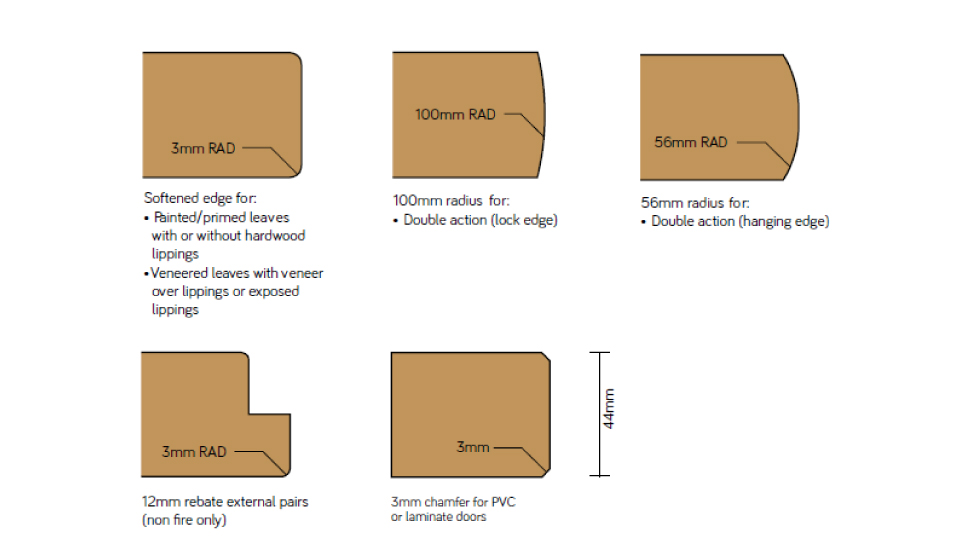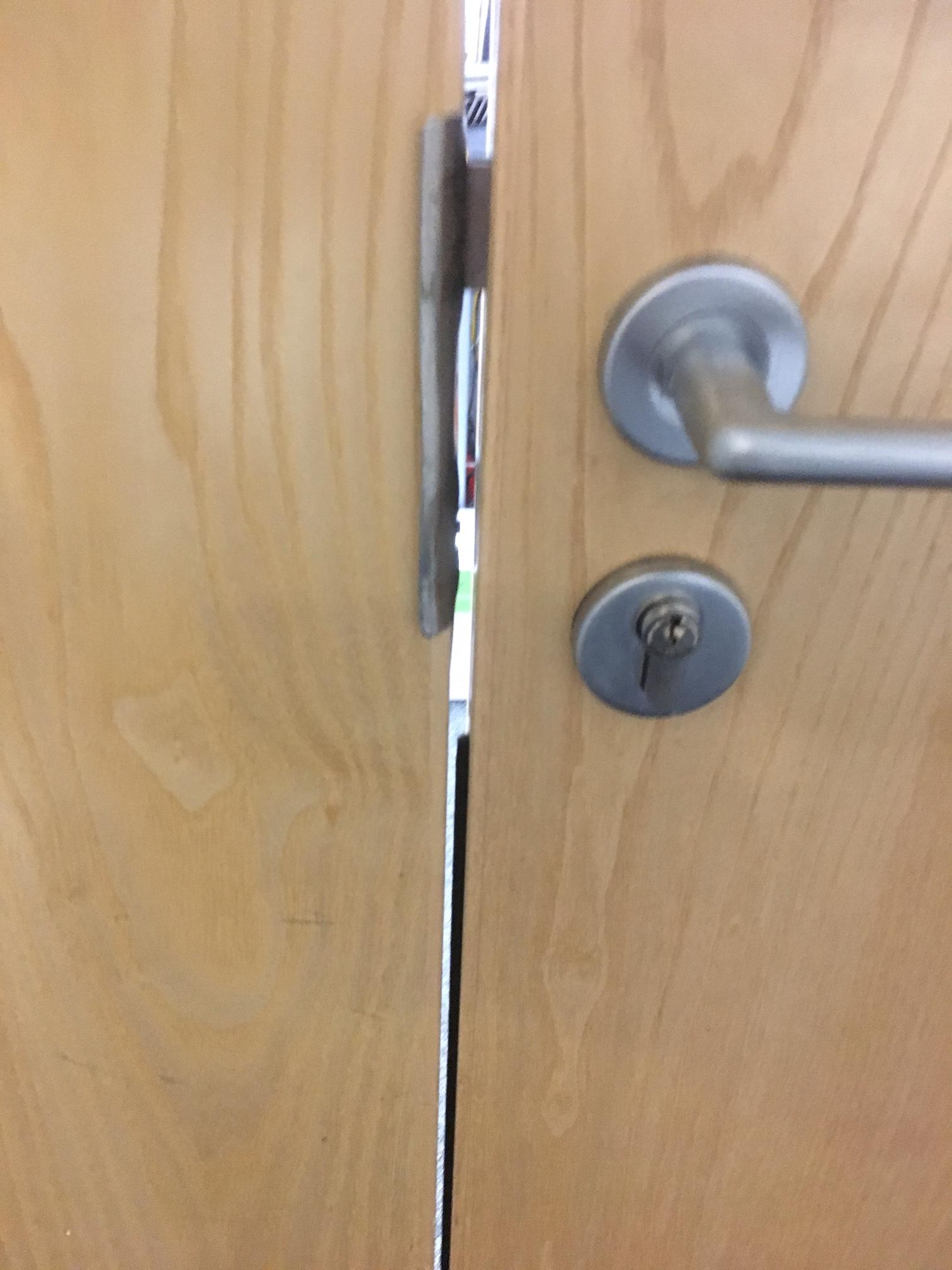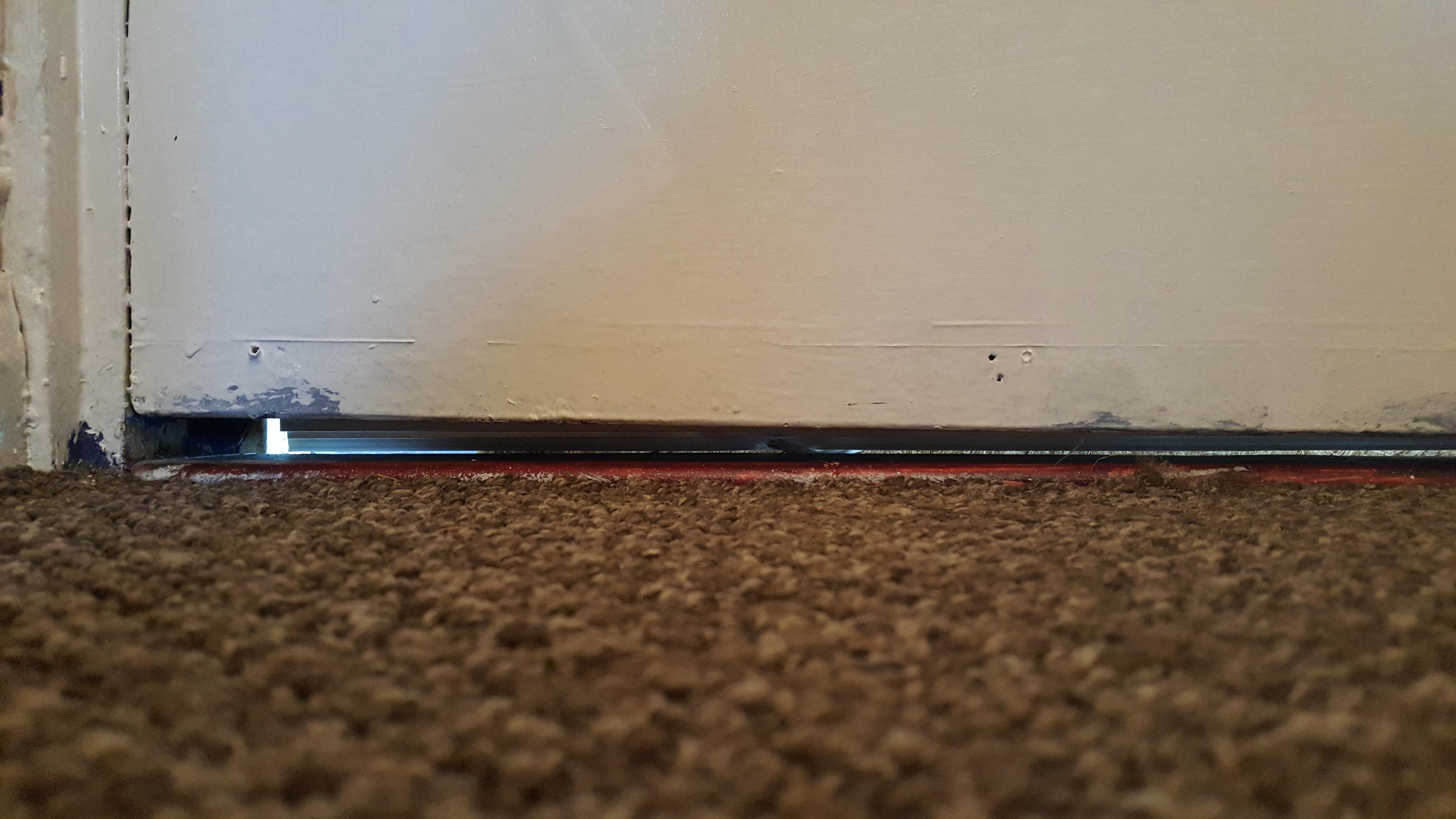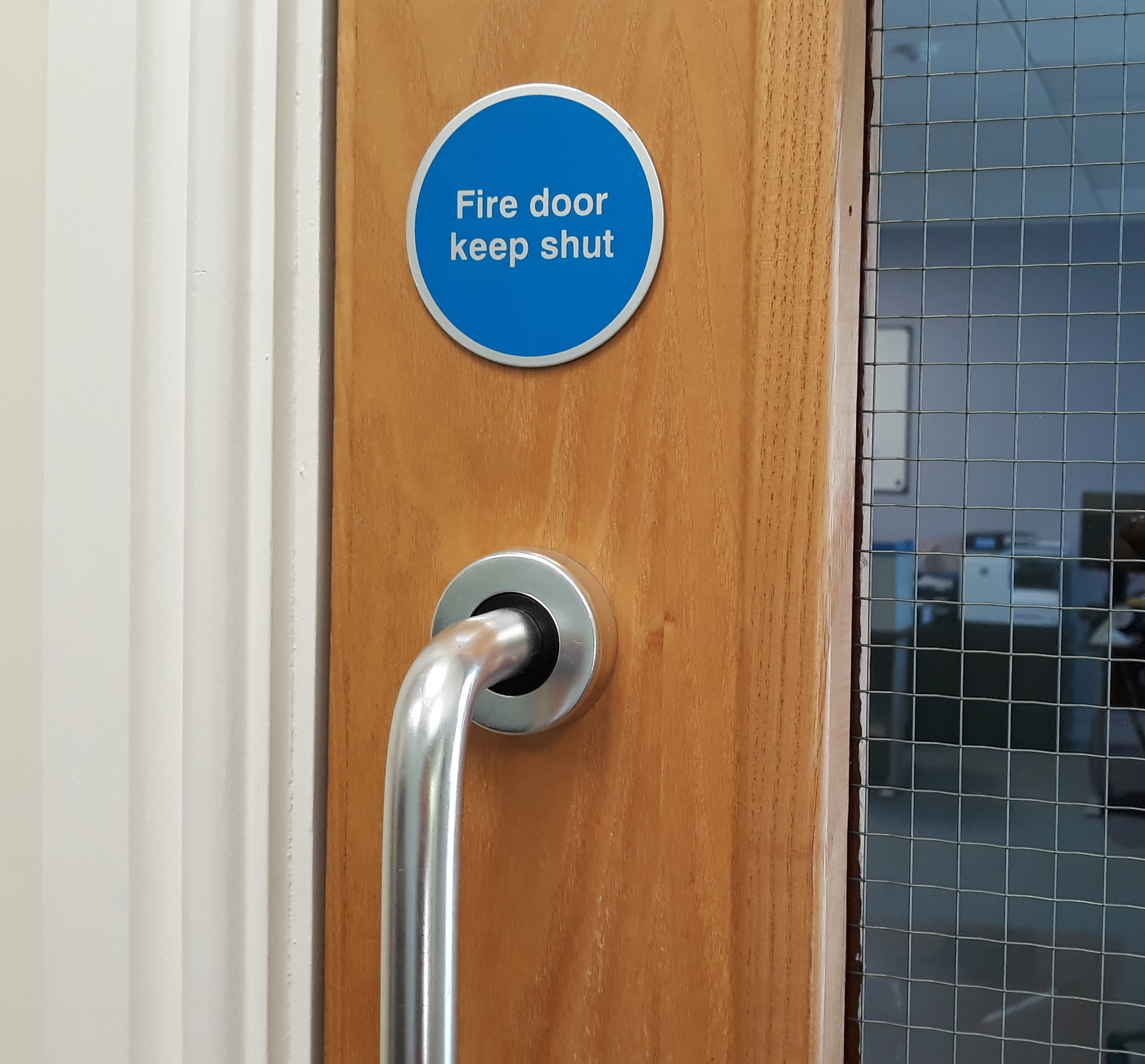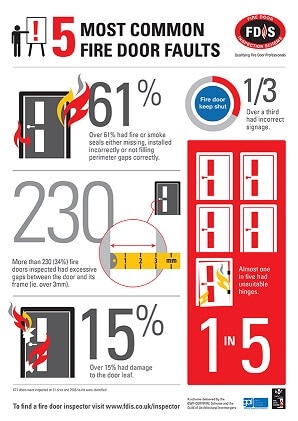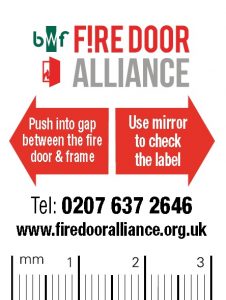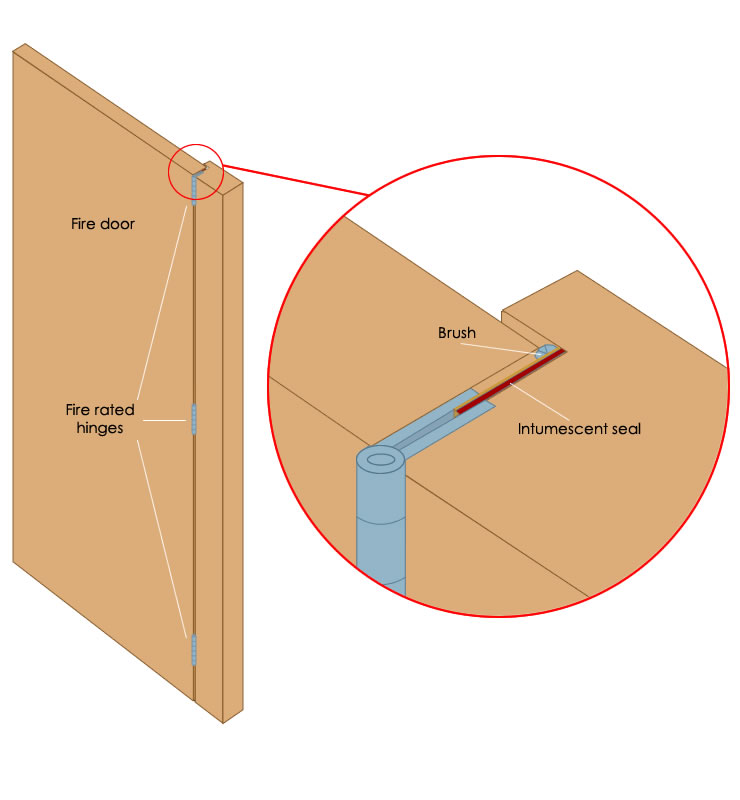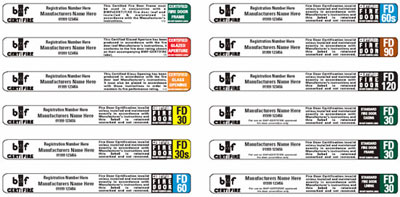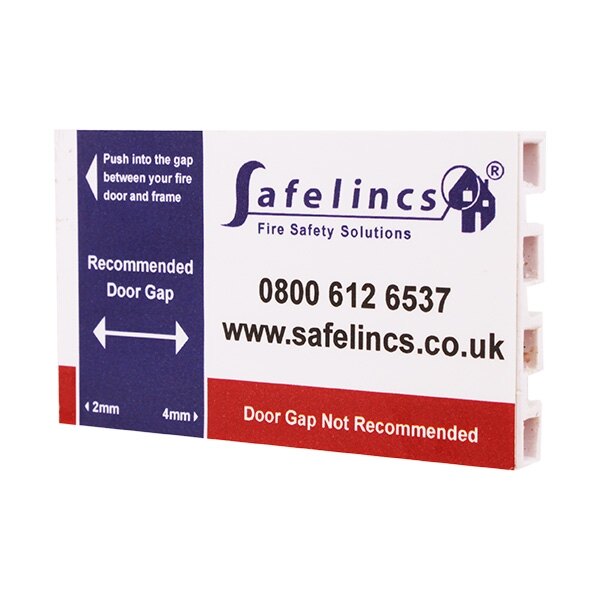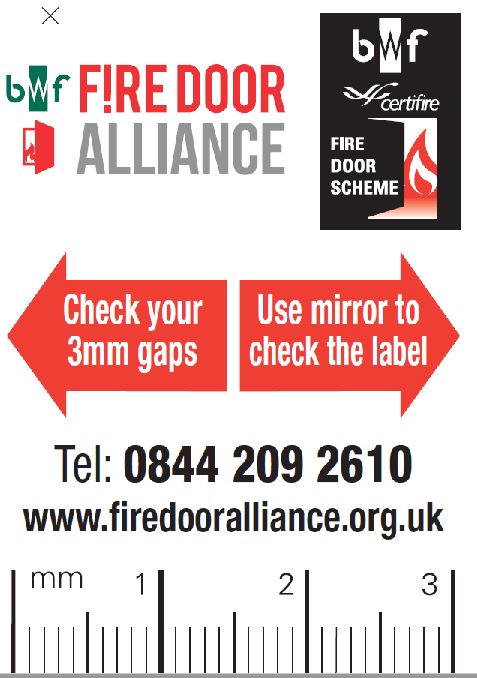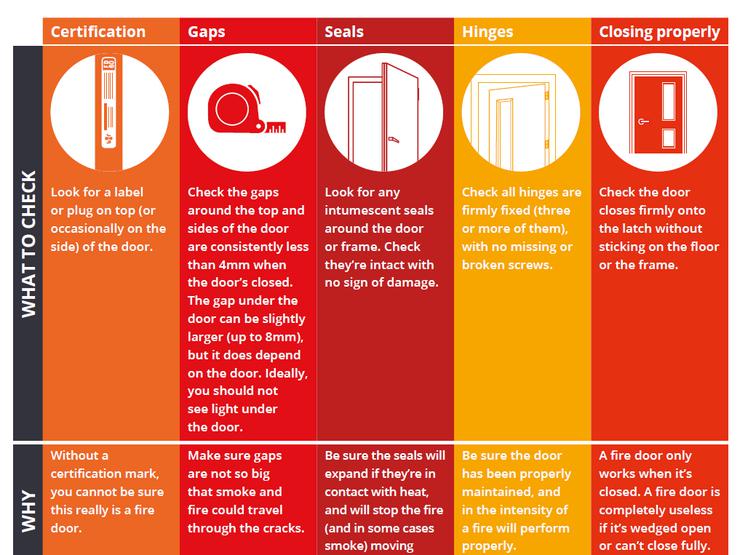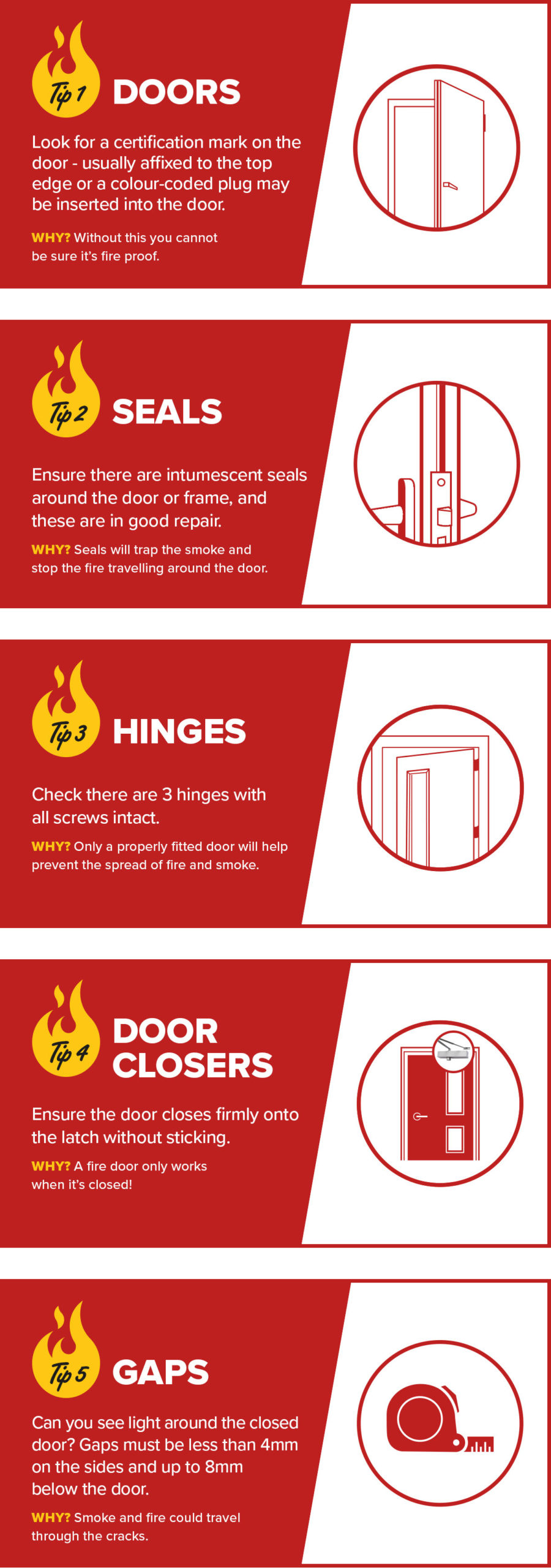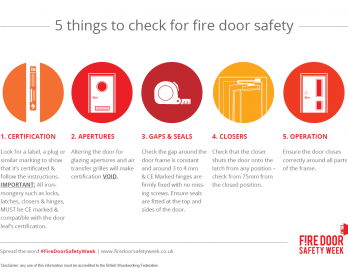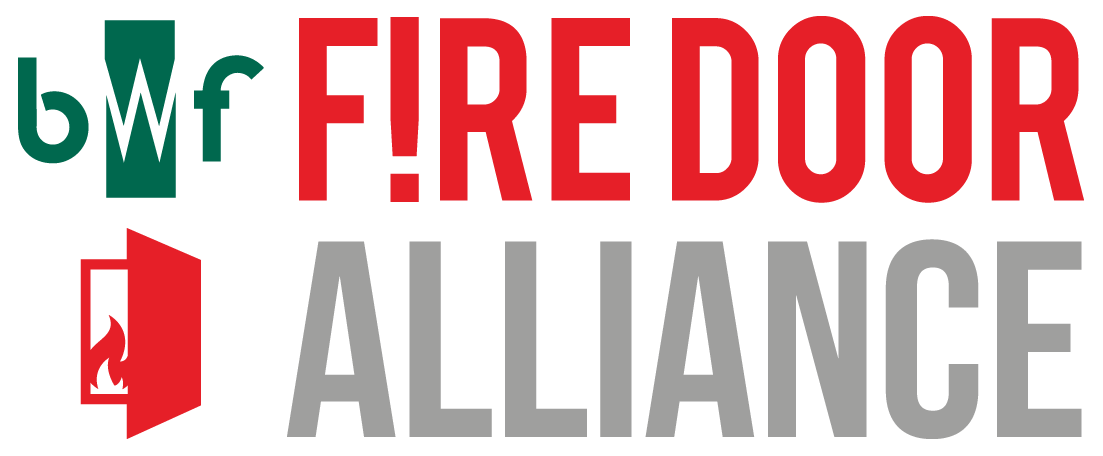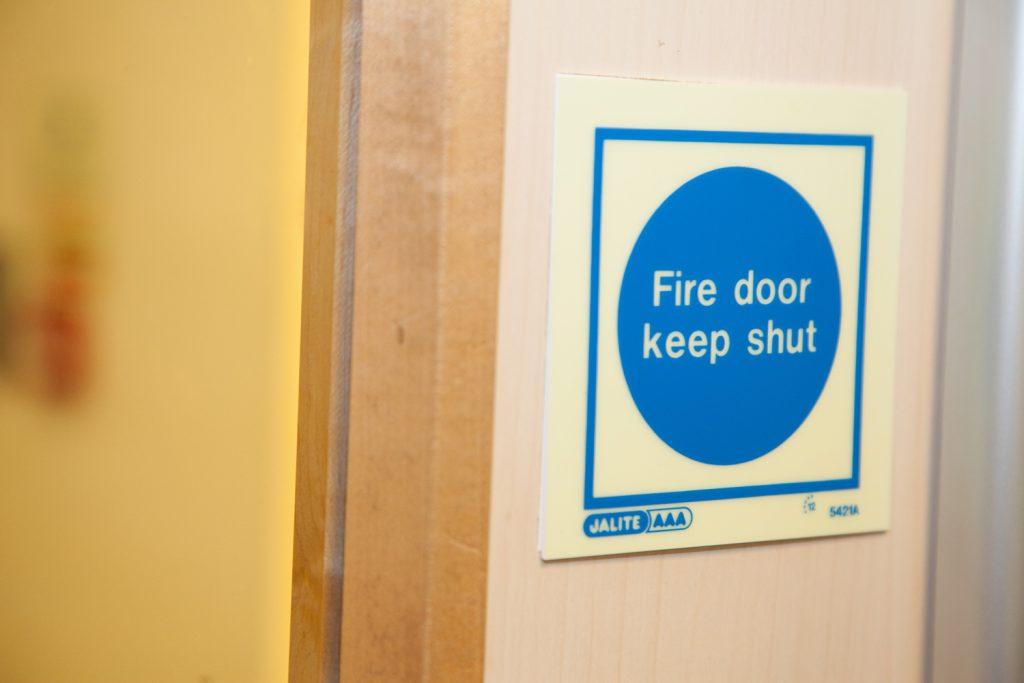Fire doors need a seal around the edges which swells when heated to block any gaps if the doors are fitted with windows the glazing must be fire resistant all ironmongery on the doors needs to be fire resistant.
Fire door gaps uk.
3 4 between door and frame.
What gaps are required around a door and its frame.
Please could you confirm or otherwise my understanding that the maximim 8 10mm gap usually cited as permissible at the bottom of the fire door should be to allow for the carpet i e.
This makes the gap between the carpet and doors around 10 15mm.
Regulations which apply the directive and its requirements in the uk.
Ce marked hinges tested to bs en1935 should be used on fire or smoke.
In general clearance for those allowed gaps are as follows.
Gaps between fire doors and the door frame should never be more than 4mm or less than 2mm.
All fire doors display certificates and relevant markings to verify their fire integrity.
Check for a label or a plug on top or on the side of each door for a fire resistance rating.
Nfpa 80 fire doors and other opening protectives.
1 8 for more detailed gap information refer to nfpa 80 section 6 3 1 7 and section.
In general the gap should not exceed 3mm along the 2 long edges and across top of the door leaf to facilitate checking of the gap on site a bwf fire door alliance scheme gap.
How much can you cut off a fire door.
Fire and hot gases can easily pass through gaps around the door within seconds and so to ensure the safety and reliability of the door always fit.
If there isn t one it is most likely not a fire door and will not protect you in a fire.
Bs9999 2008 recommends for fire doors with cold smoke control that the threshold gap should be either less than 3mm in height or should be fitted with a threshold seal.
Nothing must be cut at the top at all and the certification label must remain intact.
Gaps around the fire door should be 3mm or less to stop smoke.
The gap between the door and the frame is extremely important and must be suitable for the intumescent seal fitted.
Fire doors basic guidance.
Contains information on maximum gap allowances for different types of fire doors.
It s recommended to aim for a 3mm gap to ensure adequate room for the intumescent strips to activate in the event of a fire and for the smoke seal strips if installed to not get damaged by the opening and closing of the door.
Underneath the fire door a gap of 8mm is traditionally acceptable although for fire doors that are required to limit spread of cold smoke only 3 mm is permissible with a threshold seal to be fitted if the gap is bigger.
1 8 meeting edges for a pair of doors.
